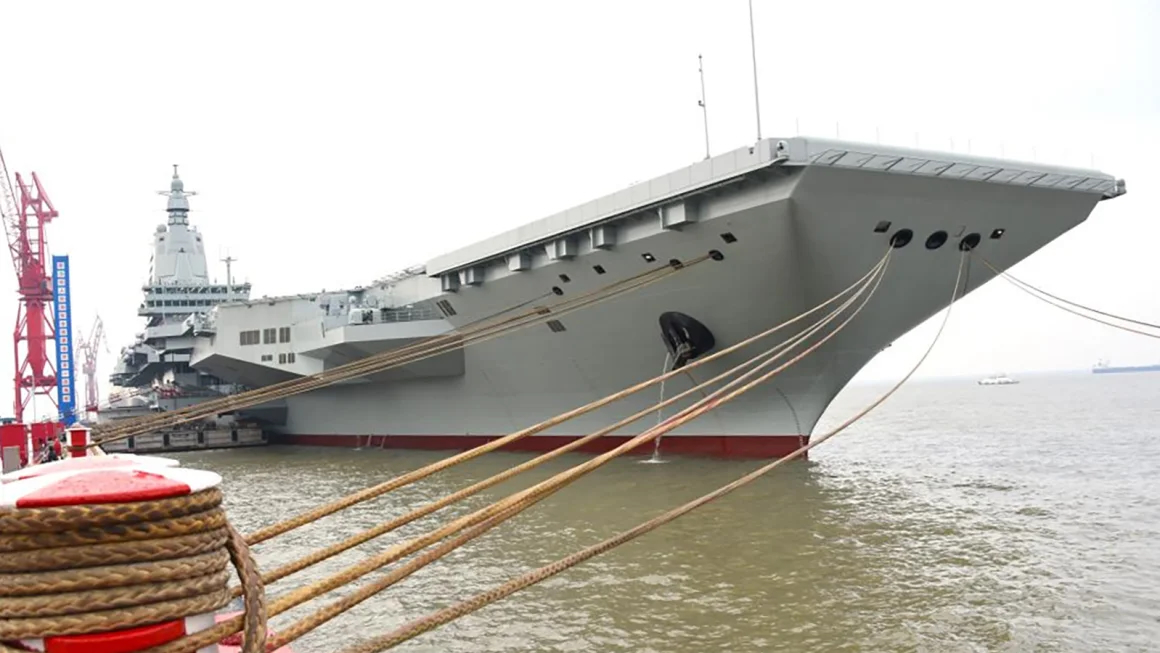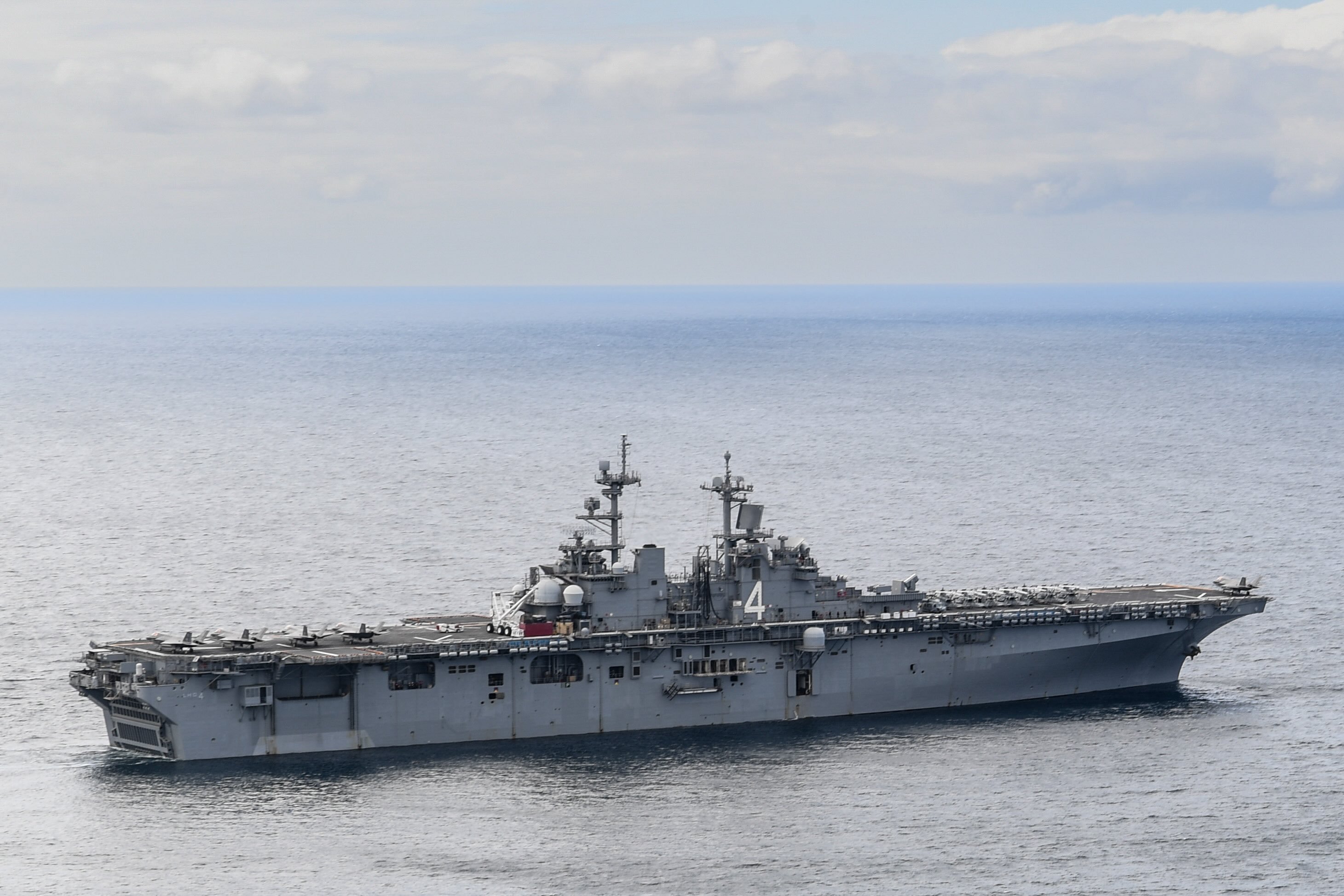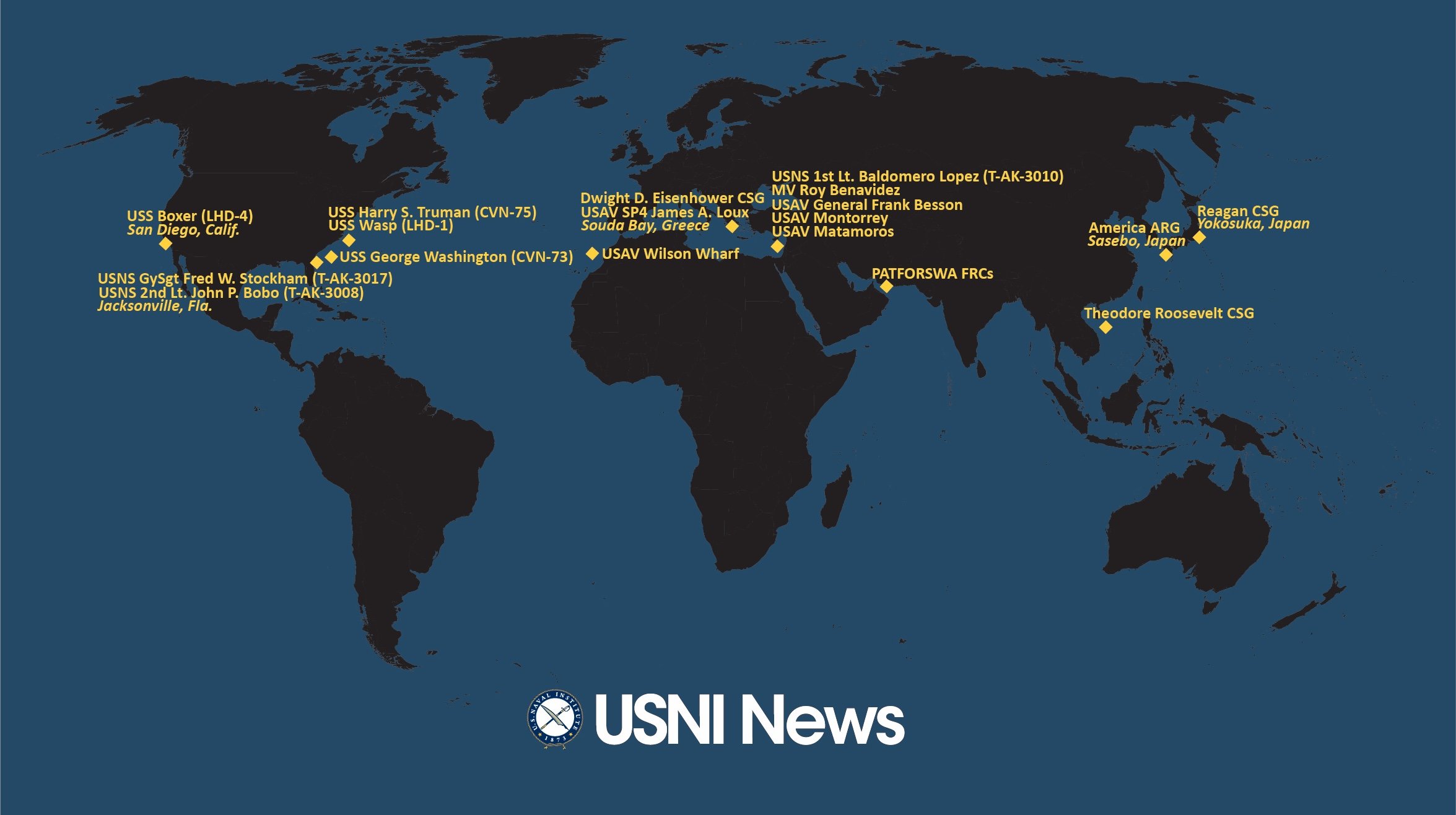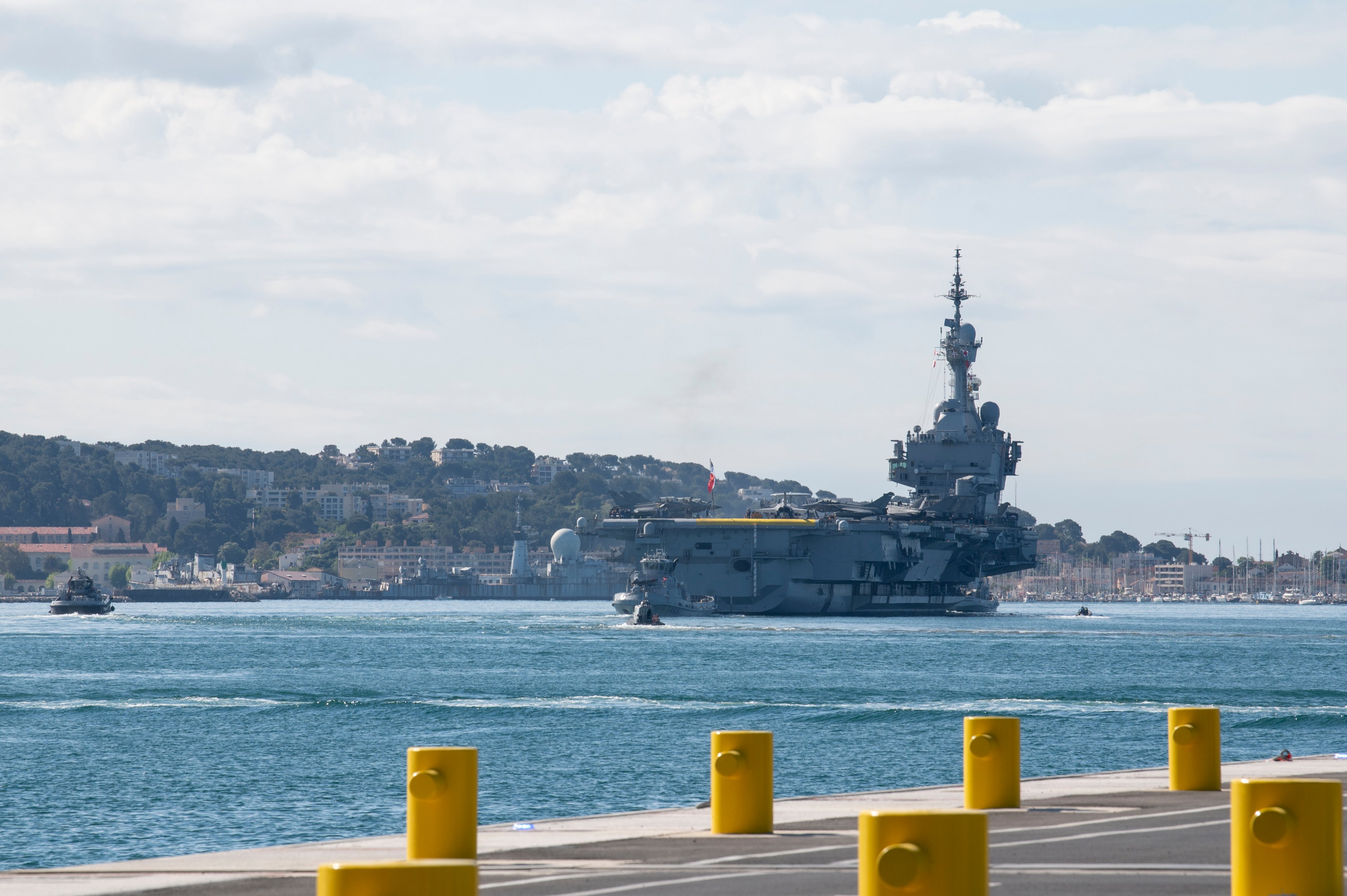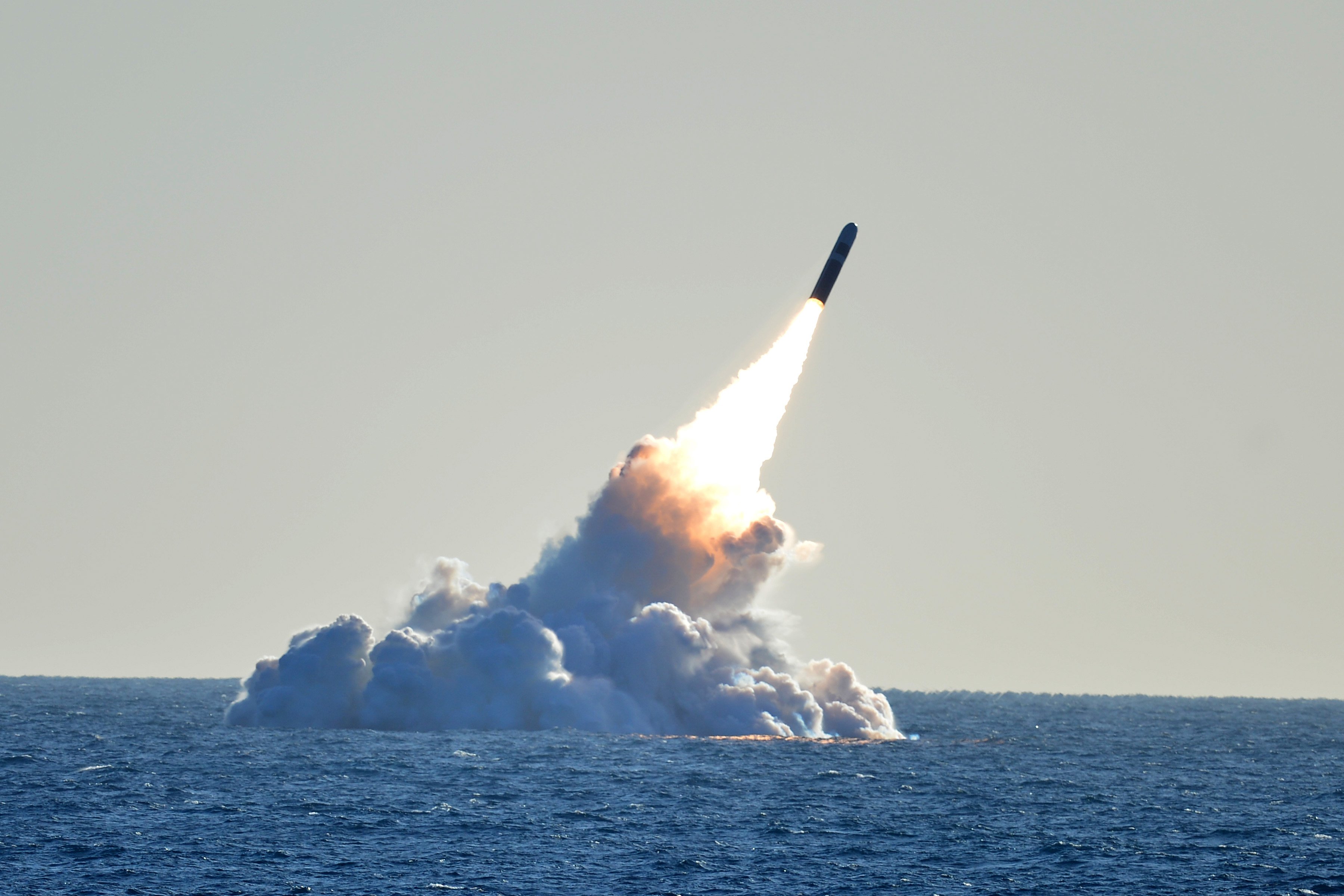
An administration under former Vice President Joe Biden would likely reassess the nuclear posture review, according to the chairman of the House Armed Services Committee.
Rep. Adam Smith (D-Wash.) said during a virtual event hosted by the Center for a New American Security on Thursday that, should Biden win next week’s presidential election, his administration is expected to take a second look at how the United States approaches nuclear weapons.
“I’m confident that the Biden administration – if it comes – is going to feel this way, that we need to reexamine the nuclear posture review,” Smith said.
“So we’re going to sort of reexamine that issue, and I don’t know where we’re going to come out. But I am quite confident that you’re going to have a new look at the nuclear posture review.”
Smith said he is not convinced either way as to whether the U.S. needs a nuclear triad, but that he is “skeptical” of the position that the triad is required to deter potential adversaries.
“I frankly think that our [intercontinental ballistic missile] fleet right now is driven as much by politics as it is by a policy necessity,” Smith said. “You know, there are certain states in the union that apparently are fond of being a nuclear target. And you know, it’s part of their economy. It’s what they do.”
“It’s worth talking about,” he added of the approach to the triad. “It’s worth having the debate to envision what should our nuclear deterrence policy look like and what do we need to build to achieve it.”
While the Obama administration published a nuclear posture review in 2010, the Trump administration in 2018 unveiled its own assessment, which called for low-yield nuclear weapons, a capability Smith does not support the Pentagon pursuing.
The best approach to the nuclear weapons, according to Smith, is to use them as a deterrence.
“So what I would want us to have is a nuclear arsenal that is sufficient to deter anyone from thinking that it makes sense to start a nuclear war because we can make it clear that the cost will be too high for them to do that,” he said. “We have a nuclear arsenal that still envisions ‘winning’ a nuclear war; alright, that’s what I find insane.”
Biden has expressed similar views to Smith’s on deterrence and nuclear weapons. In a 2019 questionnaire that was updated this month, the former vice president told the Council for a Livable World that he agreed with former President Ronald Reagan’s belief that no country could achieve victory in a nuclear war, so it should avoid fighting one.
“Our nuclear arsenal should be managed in a way that deters the use of nuclear weapons and makes nuclear use less likely,” Biden told the organization in his response. “The use of even one nuclear weapon would be catastrophic, cause significant casualties, and result in enduring radiation that could affect millions of humans, as well as the environment. There would be no ‘winners’ in a nuclear exchange.”
The Pentagon is in the process of updating the three legs of the nuclear triad. The Navy in Fiscal Year 2021 is slated to begin purchasing its new Columbia-class ballistic missile submarine, which is the sea-based leg of the triad.
Smith argued that the Pentagon’s National Defense Strategy – which stresses that the U.S. is now in a period of great power competition with countries like China and Russia – also requires a reassessment.
“The part of the framework that I’m most concerned about is the degree to which it appears that they want to start sort of two separate cold wars with Russia and with China. And the idea that what great power competition means is that we have to build a military that can dominate both China and Russia in a direct confrontation: I do not support that. I think that is an extraordinarily dangerous approach,” Smith said.
“It’s unbelievably expensive. First of all, I don’t think it’s achievable. I mean, the size of China, the size of Russia – the assets – and they’re different,” he continued. “Russia’s assets are really more a history of a strong military and building that back up. China is sheer economic power and what that can lead to in terms of their ability to build military and defense capabilities.”
The Defense Department’s emphasis on great power competition has led to the services retooling their strategies in preparation for a future conflict. The Marine Corps has embarked on a force design effort meant to gear up for a potential 2030 fight with China in the Pacific, while the Navy is also evaluating its future fleet architecture.
The House Armed Services Committee chairman pointed to Defense Secretary Mark Esper’s recent call for a naval fleet of more than 500 ships – with both manned and unmanned vessels – as an incorrect approach, reiterating his argument that capability is more important than quantity.
“The idea that we’re going to somehow – there’s enough money in the world for us to build a military that can guarantee victory over both Russia and China, I don’t think the facts bear that out,” Smith said. “So it’s a fool’s errand to try to go down there thinking – and this is the whole thing behind the 500-ship Navy, which drives me insane, by the way. I was not a fan of the 355-ship Navy because, what does that even mean? What we need to focus on is capabilities. What are we trying to accomplish?”
Esper has discussed an outline of his plan – dubbed Battle Force 2045 – at several recent events. But the Pentagon has yet to publicly release any documents providing more details, including how the Navy and its shipbuilders could build and maintain a larger fleet.
With the 2020 presidential election days away, Smith said the Senate will not meet to discuss the annual defense authorization bill conference negotiations until after the election. The chairmen and ranking members of the House and Senate Armed Services Committees – known as “the big four” – only met one time for an hour.
The issues the two chambers need to work out are “narrower” than last year, according to Smith, but the chairman said he is worried about the timeline lawmakers have to finish the legislation.
“At some point you got to negotiate the issues. Now some of the issues are going to be issues that neither side’s going to want to make a decision on until after we know the election. But a lot of them aren’t. A lot of them are things that we can sit down and talk about, but right now the Senate is unwilling to meet until Nov. 9,” he said.
“So I’m deeply concerned at this point that Nov. 9 is going to make it very difficult to get this done in the time that we need to get it done in,” Smith added. “So the process is the problem. I mean, the issues I think we can hammer through. But you got to start hammering if you’re going to get there.”


